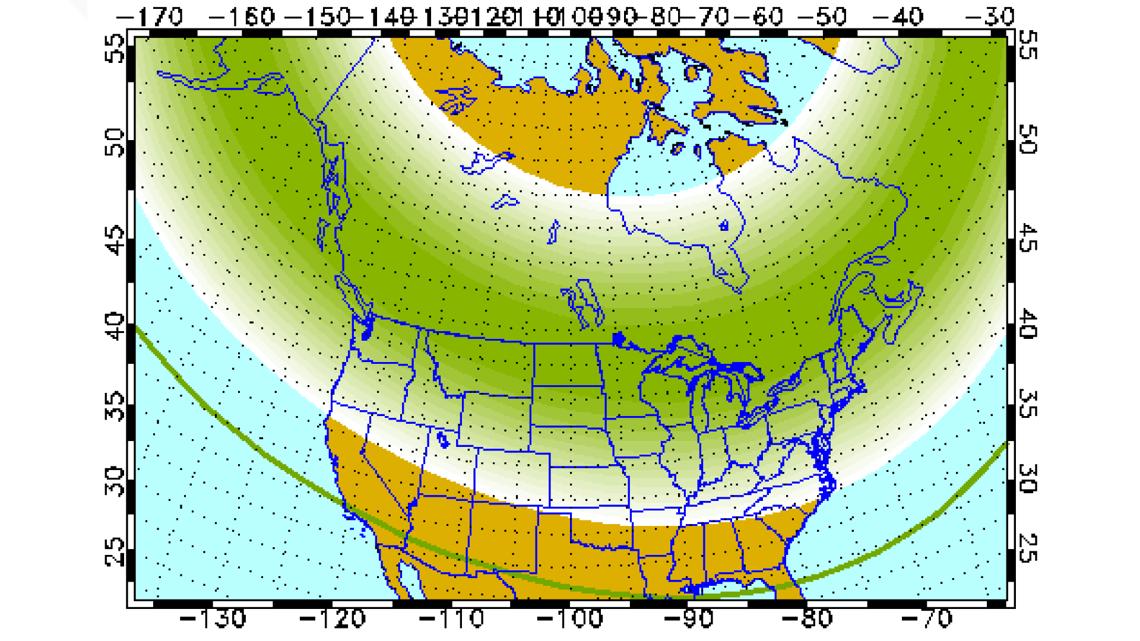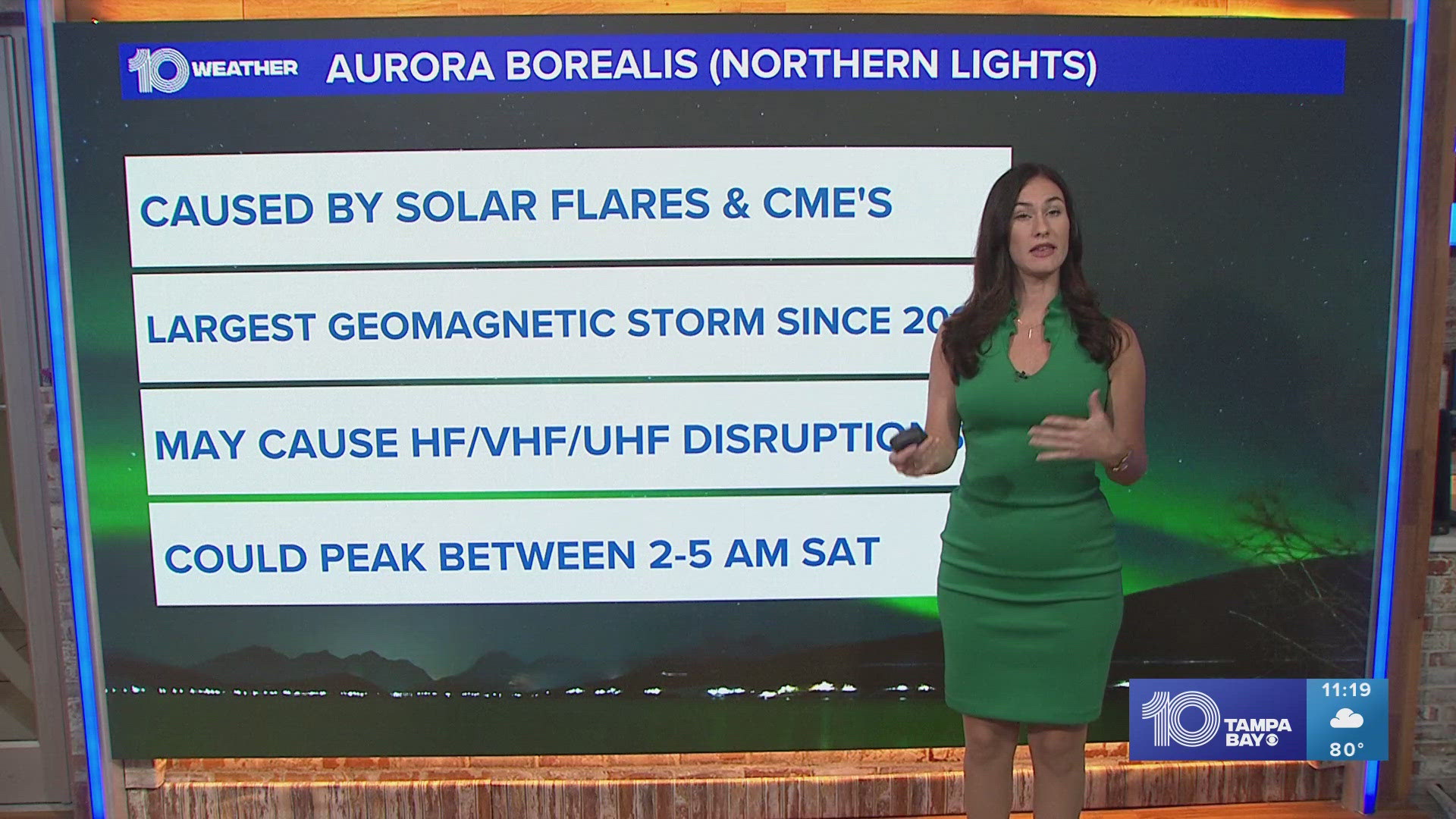TAMPA, Fla. — A large portion of the U.S. will likely see increased Northern Lights activity Friday night and throughout the weekend. But what about Florida?
According to one forecast, there's a chance.
On Thursday, the National Oceanic and Atmospheric Administration's Space Weather Prediction Center (NOAA SWPC) issued a G4 watch, something that reportedly hasn't happened since 2005. This means a severe Geomagnetic Storm could happen in Earth's atmosphere due to the anticipated highly-elevated geomagnetic activity.
This rare watch is in effect after several coronal mass ejections (CMEs) erupted from the Sun. These CMEs are expected to reach Earth, causing increased geomagnetic activity. In turn, that solar wind and storm activity results in the aurora borealis, aka the Northern Lights.
The bulk of the geomagnetic activity is forecast to impact Earth late Friday, May 10, or early Saturday, May 11. And, because of multiple CMEs impacting Earth, more of the world has the chance to see the Northern Lights.
How far south the Northern Lights will be seen comes into question, so we looked at two aurora forecasts — one from the SWPC and another from the University of Alaska Fairbank's Geophysical Institute.
Can you see the Northern Lights in Florida?
The latest forecast from SWPC says the aurora borealis will be most visible over much of the northern half of the U.S. However, forecasters say it's possible people as far south as Alabama could see the Northern Lights low on the horizon.
SWPC did not include Florida in its aurora viewing forecast.
All hope isn't lost, however. The University of Alaska's space forecasters show a more generous viewing potential for the U.S.
Its current map shows Florida within the southernmost potential viewing of the Northern Lights.


That's by no means a guarantee, but Floridians who would like to stake out under the stars to possibly catch a glimpse have a small chance of seeing something. If you happen to be in the central to northern part of the state, that's the best place to see that sliver of the aurora, potentially.
It should also be noted that even if the aurora does reach Florida, viewers won't see the spectacular ribbons of glowing light dance in the night sky. Instead, the aurora will probably be a "faint glow on the horizon," according to NOAA.
Bottom line: Don't get your hopes up but there is a slim chance to catch a glimpse of the Northern Lights in Florida.
When is the best time to see the Northern Lights?
According to the Geophysical Institute, the best time to watch for aurora is the hours in and around midnight.
Typically, between 9 p.m. to 3 a.m. is the sweet spot for viewing the most brilliant aurora. However, it does vary based on weather and sunset and sunrise times.
As for weather in the Tampa Bay area from May 10 into May 11, skies should be relatively clear most of the night, but clouds and some showers could pop up over the early morning hours on Saturday.

